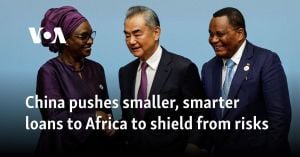Germany's political discourse has recently found itself tangled up with various myths perpetuated by political entities and media narratives. Prominent among these are claims about immigration, social justice, and climate policy—assertions often drawn from leftist beliefs. An analysis by Nikolaus Blome, the politics chief at RTL and ntv, is challenging the veracity of these claims head-on.
Blome's argument centers on the assertion, "Sätze wie diese, linke Glaubenssätze, prägen seit Jahrzehnten die Politik unseres Landes. Aber kein einziger stimmt." This emphasizes the discord between commonly accepted beliefs and the underlying facts, reflecting long-standing societal misconceptions about the realities of Germany's immigration status and welfare policies.
Many narratives present Germany as primarily welcoming to immigrants, which raises questions about the long-standing belief of Germany as an 'Einwanderungsland'. Statistics reveal variations and often draw attention to challenges faced by immigrants, often skewed for political leverage.
Meanwhile, the perception of impoverished retirees is swept under the rug, often misrepresented to fit political agendas. The often-heard sentiment, "Rentner sind arm," oversimplifies the complexity of financial realities faced by the elderly, masking successes and sustainable policies implemented over the years.
A pressing topic within this discourse is the country's stance on climate change and environmental responsibility. According to Blome, the legitimate efforts made by the government to tackle climate issues are frequently overshadowed by exaggerated claims of inadequacy. There exists little recognition of the actual measures put forth, leaving the conversation veiled by populist discourse.
Further complicity arises from the handling of social justice topics like gender pay equity. The government's push for the 'Equal Pay Day', marked as the day women are considered to work 'unpaid' for the rest of the year due to pay discrepancies, is called out by Blome. He mentions, "Der reale Pay Gap Day fällt darum, wenn überhaupt, auf den 22. Januar," indicating the real gap between men and women remains much smaller than is claimed.
Statistics released by Germany's Federal Statistical Office indicate the unadjusted pay gap shows women earning around 20.84 euros per hour compared to male counterparts, amounting to 4.46 euros less per hour. While the raw wage gap figures appear large, the adjusted value—factoring job type, hours worked, and career breaks—reveals the actual disparity ranges from 2 to 6 percent. This significant difference often goes unnoticed, skewed by political activists.”
Blome elucidates the systematic nature of wage disparities attributed to work hours and job types, pointing out, "Viele dieser Vereinbarungen zwischen Gewerkschaften und Unternehmerverbänden schreiben fest, dass die Zahl der Dienstjahre maßgeblichen Einfluss auf das Gehalt hat." This creates inherent bias against women, particularly those who take time off for childcare or family matters.
Policies surrounding this topic often reduce complex social issues to slogans or campaign fodder, rather than fostering genuine discussion and informed policy-making. The looming question becomes what substantive impact these unfounded myths have on real policy decisions pertaining to social issues, economic reforms, and equality.
With political campaigning impending, the responsibility lies with media and politicians alike to address incorrectly presented narratives and advance factual, rational discussions. The stakes are high, as public opinion shapes policy effectively molded by such misrepresentations.
There’s discomforting reality within these evaluations as evidenced by the flawed Equal Pay Transparency Act which has shown no meaningful improvement since its introduction. Blome argues for the ambitious need to reform tariff agreements directly, to root out discrimination embedded within practices, fostering equity beyond mere presentation.
Drawing to conclusions, it is imperative for the public and policymakers to acknowledge this discourse, refocusing narratives on factual representations rather than political convenience. The repercussions of myth-laden policy are palpable, threatening the base comprehension of reality among citizens. Only through resilience against misinformation can they empower policymaking grounded on reality and wisdom.



